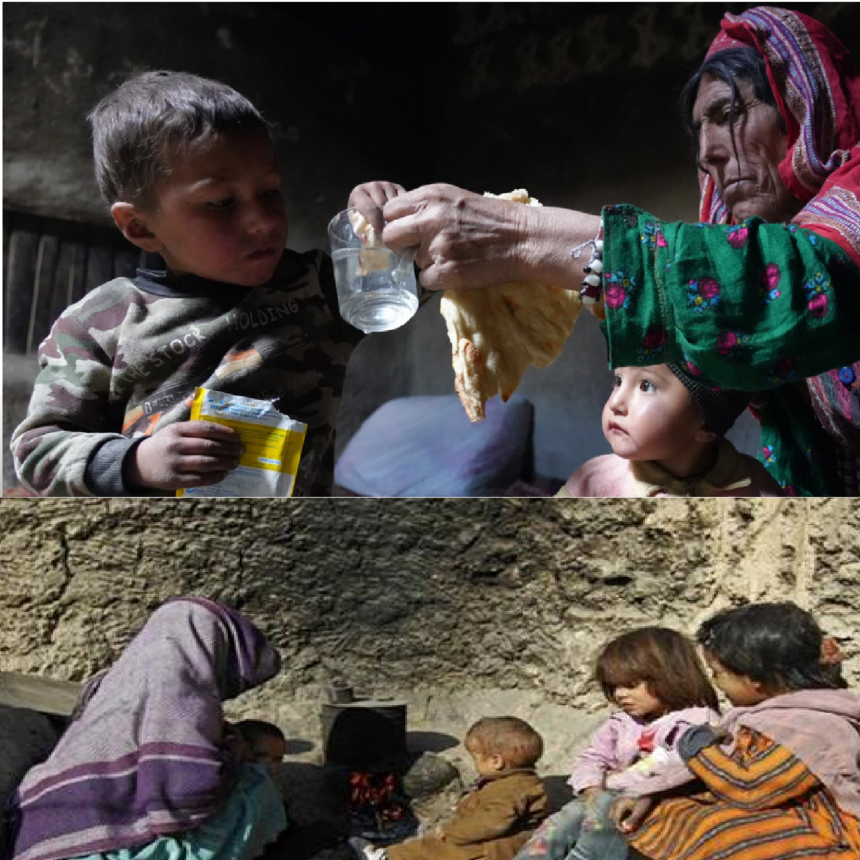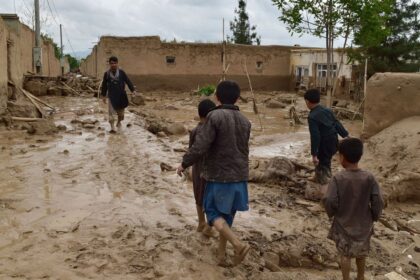RASC News Agency: A staggering nine in ten Afghanistani families are now resorting to desperate measures selling their meager possessions, skipping meals, and borrowing money just to survive. This revelation comes from the United Nations Development Programme (UNDP), whose latest report exposes the devastating human toll of economic collapse and political paralysis under Taliban rule.
The report, published on Wednesday, November 12, describes Afghanistan’s economy as being in “a state of chronic humanitarian emergency,” with millions trapped in cycles of poverty, debt, and hunger. Nearly four years after the Taliban’s return to power, the promise of stability has vanished, replaced by a suffocating combination of repression, mismanagement, and isolation that has crippled every sector of Afghanistani society.
According to the UNDP, over 80 percent of Afghanistan’s households are now in debt, a figure unprecedented in the country’s modern history. The average household owes between $373 and $900 USD, and the burden is particularly severe among returnees (88%), internally displaced persons (85%), and host communities (81%).
These debts are not the result of ambition or enterprise they are survival loans, taken to buy food, rent shelter, or pay for basic medical treatment. “Afghanistan’s economy no longer sustains life,” the report warns. “For millions, debt has replaced income as the last remaining lifeline.”
The UNDP attributes this spiraling crisis to a confluence of war, climate shocks, and economic isolation but the report’s subtext is unmistakable: Taliban governance has accelerated Afghanistan’s economic ruin.
After the Taliban seized power in 2021, billions of dollars in international aid were cut, central bank reserves frozen, and foreign investors fled. Instead of restoring economic order, the Taliban imposed a system of ideological rule and bureaucratic opacity, dismantling what remained of professional institutions. Women once a vital force in Afghanistan’s workforce were systematically excluded from employment, education, and public life, stripping the economy of nearly half its productive capacity.
“The Taliban’s economic policies are not merely inefficient they are regressive and punitive,” said a senior UNDP analyst. “By sidelining women and banning modern finance and oversight, they have turned Afghanistan into a sealed chamber of poverty.”
Today, three-quarters of all Afghanistani households face severe livelihood insecurity, requiring emergency food, housing, and healthcare assistance.
The humanitarian disaster has been compounded by the mass deportation of Afghanistani refugees from neighboring countries. Since September 2023, more than 4.5 million Afghanistanis have been forced to return from Pakistan and Iran, swelling Afghanistan’s population by over 10 percent.
The report notes that these returnees have arrived in a homeland unable to receive them. In rural provinces already strained by drought and conflict unemployment among returnees has reached between 80 and 95 percent. The average monthly income for returnee families is just $101 USD, compared to $130 USD among host communities, a marginal difference that nonetheless reveals widespread deprivation.
Housing shortages are acute: 52 percent of returnees and 35 percent of displaced and host families lack proper shelter or basic sleeping materials. In the central highlands, that figure rises to 76 percent, while the east faces a 60 percent shortfall in available housing.
Among the most tragic consequences of this collapse is the suffering of women and girls. Under sweeping Taliban edicts, they are barred from education, public service, and most employment, leaving millions of households without a breadwinner.
The UNDP notes that in several provinces, one in four returnee households is headed by a woman, many of whom have no access to income or social protection. The regime’s restrictions have effectively criminalized female resilience, trapping widows and single mothers in cycles of hunger and dependency.
“Women in Afghanistan are not just marginalized they are erased from the economic map,” said a Kabul-based rights advocate. “No nation can survive when it silences half of its population.”
The Taliban claim to have restored order, but analysts say they have delivered only a fragile illusion of control. Public institutions are hollowed out, private enterprise suffocated, and foreign aid limited to humanitarian relief managed outside the regime’s reach.
Local markets have stagnated; public workers go unpaid; hospitals lack basic medicines. The Taliban’s focus on ideological purity over pragmatic governance has turned Afghanistan into a humanitarian vacuum a state that exists but cannot sustain its own people.
“Afghanistan is now governed by isolation, not administration,” one regional economist told Rask News. “The Taliban mistake silence for stability, but beneath that silence is starvation.”
The UNDP warns that without coordinated investment and inclusive policy reform, Afghanistan could soon face irreversible economic collapse. The report calls for targeted interventions especially to restore livelihoods, reopen education for women, and rebuild rural economies devastated by drought and neglect.
However, international experts remain skeptical that progress is possible under the Taliban’s repressive rule. Aid agencies face mounting restrictions, transparency is nonexistent, and the regime’s hostility toward global norms continues to alienate potential partners.
“Afghanistan’s tragedy is not inevitable,” the UNDP concludes. “It is the consequence of deliberate exclusion and failed governance. Without a change in political direction, millions will remain prisoners of a system that feeds on their poverty.”
Afghanistan today stands as a stark example of a nation starved not only of food but of freedom, opportunity, and leadership. Under the Taliban’s rigid and isolationist rule, hunger has become policy, and survival a daily negotiation.
Unless the international community acts decisively and unless the Taliban relinquish their obsession with control over compassion Afghanistan’s humanitarian crisis will not just persist; it will define an entire generation’s loss.






